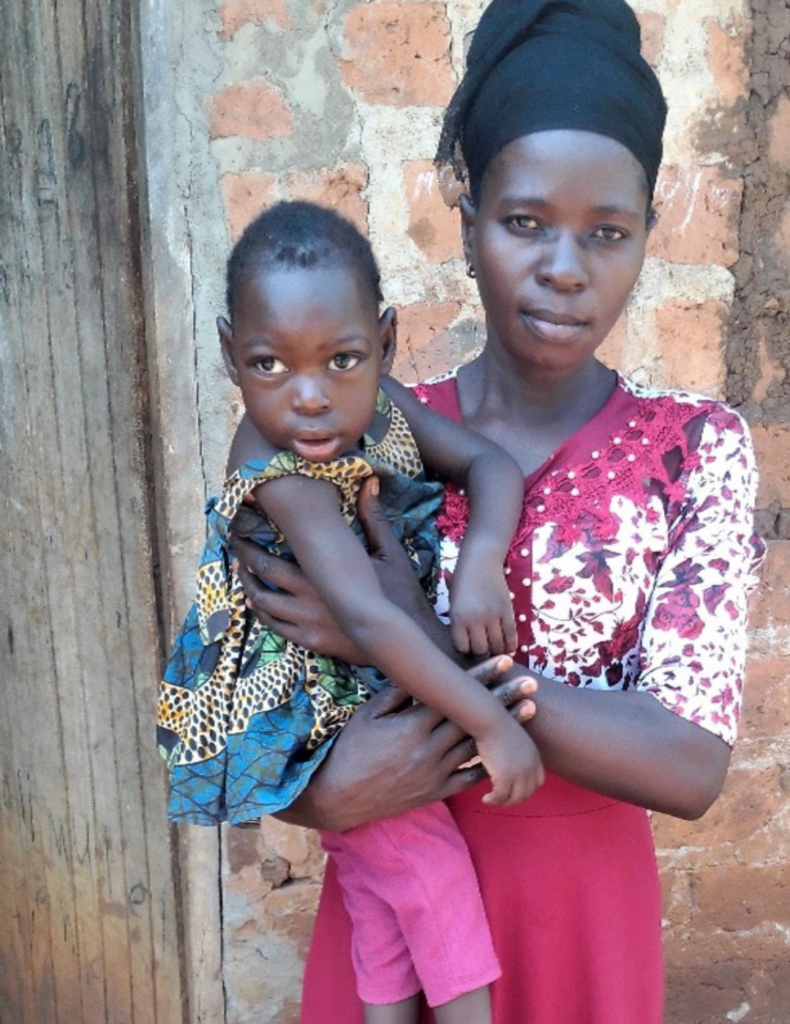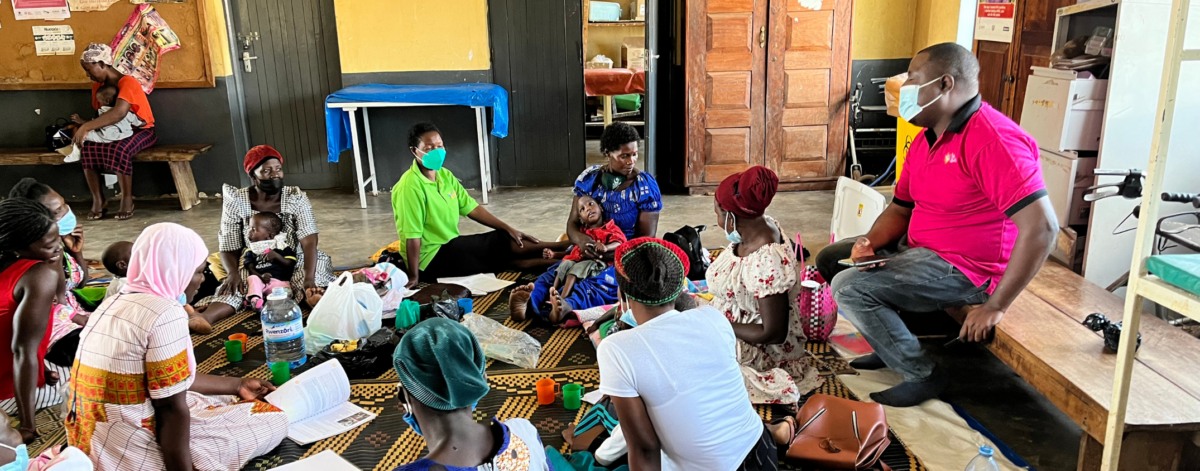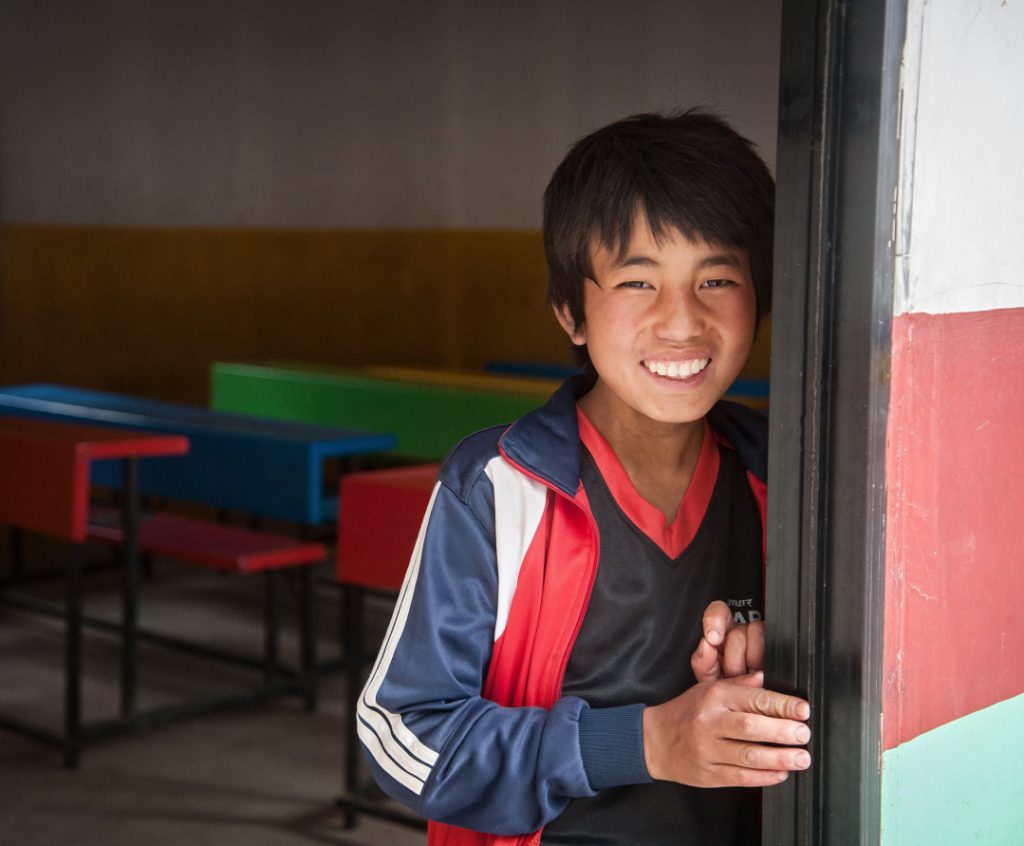Every child deserves support to enrich their quality of life. Every caregiver deserves access to the resources they need to support their child. These beliefs are at the heart of Baby Ubuntu, an early-intervention programme that aims to improve quality of life for children with moderate to severe neurodisabilities and their caregivers.
Baby Ubuntu has been a lifeline for hundreds of caregivers. This includes William and Sharon, who faced immense struggles in search of treatment for their daughter, two-year-old Aggie. Aggie was born at home with the help of local women. When Aggie began having seizures at four days old, Sharon sought treatment from traditional herbalists.
The traditional herbalists advised them to pay two million Uganda shillings (around US$520) and purchase two cows, two goats, and various items for a sacrificial ceremony. This was meant to appease the gods and remove a curse they believe had taken over the child.
William used his family home as collateral to secure a loan from the bank to pay for the treatment. The couple’s financial status deteriorated as they sought other forms of treatment, causing them to default on loan payments and sadly lose their home.
Sharon and William’s experience is unfortunately not an unfamiliar one for families in Uganda where there are perceptions that having a child with a disability is a curse or punishment for wrongdoing. As a result, children with developmental disabilities and their families are at high risk of social and education exclusion, financial stress, and even stigma and violence.

After losing everything, Sharon thankfully learnt about Adara Development and the Baby Ubuntu programme. She enrolled in the programme and has since found hope for her daughter’s future. She was taught that her daughter had a neurodisability which was causing her seizures, not a curse.
“My husband and I had tried everything to find treatment for our child, but no one had ever explained to us why our baby looks the way she is. [Baby Ubuntu staff] Teddy and Sam gave us an explanation on what happened to my child. I understood for the first time why my baby experiencing seizures,” says Sharon. “I regretted why I hadn’t known of this programme in the first instance. We were offered medication and for the first time, I saw my baby not fitting, the crying decreased. My heart has now rested. I know what happened to my child.”
Baby Ubuntu is designed to address the challenges faced by children with neurodisabilities and their caregivers. It provides emotional and practical support to caregivers so they feel empowered and confident, with the tools to care for their child. This enables them to maximise their child’s development, health and quality of life – all while transforming community perceptions of children with disabilities.
“I was taught how to feed my baby. I started noticing changes in my her. Aggie started recognising her daddy and her siblings. We started gaining peace at home. Now she has started sitting by herself and she has started holding things in her hands by herself,” Sharon says. “I am just extremely happy for this programme because it has saved my marriage, because soon I was giving up and going back to my parents’ home. My husband greatly changed the attitude he had towards me and my girl.”
Sharon remains optimistic about family and her daughter’s future and says she is so grateful for the Baby Ubuntu programme.
“Though we no longer have our own place to stay in, we now have hope. I no longer sleep with stress, I no longer fear what people say about my child because I understood what happened to her,” she says.
“I can’t thank enough the Baby Ubuntu programme. They don’t know what they have done for our family.”
Sharon
We’re so proud to see the positive impact that the Baby Ubuntu programme is having on children with neurodisabilities and their families, like Sharon and William’s.
It’s stories like these that show the programme’s true impact.

